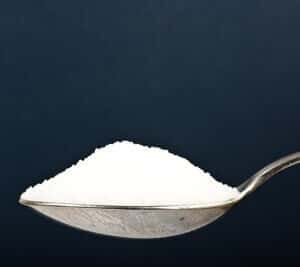
For decades we’ve been told that saturated fat and cholesterol are the twin culprits behind heart disease, but a new study suggests that sugar may be at least as dangerous to the heart. The research published in JAMA Internal Medicine (online, Feb. 3, 2014) found that sugar could be a major contributor to death from heart disease.
Sugar is not the only sweetener under a cloud. In particular, the safety of aspartame remains controversial. An Italian team of toxicologists maintains that rodent research and an epidemiological study link aspartame to cancer. Their recent commentary in the American Journal of Industrial Medicine is titled “The Carcinogenic Effects of Aspartame: The Urgent Need for Regulatory Re-Evaluation.”
Historical Perspective
For decades the only concerns raised about consuming sugary sweets had to do with cavities or obesity. When we asked a world-class diabetes expert 25 years ago whether sugar contributed to type 2 diabetes, we were told in no uncertain terms that any connection was no more than an old wives’ tale. Now we know that sugar does contribute to insulin resistance, diabetes, dementia, cirrhosis of the liver, high blood pressure and heart disease.
The latest research analyzed sugar consumption in the National Health and Nutrition Examination Survey (NHANES) and the risk of cardiovascular disease mortality. Tens of thousands of Americans were tracked for decades. The more calories people consumed in the form of sugar, the greater their likelihood of dying from heart disease.
Sugar consumption is way up in the U.S. Our great-grandparents looked upon desserts as a special treat. Today, sweets (containing sucrose and fructose) are a huge part of our daily diet. Americans consume sweetened fruit juice along with sugary yogurts and cereals for breakfast, donuts or pastries for mid-morning snacks, soft drinks at lunch and throughout the day along with a variety of sweetened snacks and desserts. It is not unusual for adolescents and adults to get 25% of their total calories from added sugar. When they do, they are getting the equivalent of 31 teaspoons of sugar.
No one could consume that much sugar at one sitting without feeling awful. But because it is hidden in so many different foods and beverages it sneaks up on us. Those who consume that much sugar are twice as likely to die from heart disease as those who get less than 10% of their calories from added sugar. Sugarholics who get one-third of their calories from sugar quadruple their risk of dying from cardiovascular causes.
Even though there are no federal guidelines on sugar consumption, less is best! Some experts are suggesting that added sugar should make up no more than 15% of total calories.
What About Aspartame?
Many people have responded to the advice to cut back on sugar by turning to artificial sweeteners. Aspartame, one of the most popular, has been available for over 40 years and is included in more than 6,000 products. It sweetens at least 500 different medications. One would assume that its safety is beyond question. The U.S. Food and Drug Administration has repeatedly affirmed that aspartame is safe. A recent risk assessment by the European Food Safety Authority (EFSA) concluded that the compound is safe at current levels of exposure.
The new review by Italian researchers, however, calls for a re-evaluation of the data. The authors point to studies of carcinogenicity over the lifetime of laboratory animals. They argue that their lifetime exposure studies are actually more sensitive than typical two-year protocols because they reflect effects that may take a long time to show up.
Adding to the controversy, Harvard researchers published their epidemiological data in The American Journal of Clinical Nutrition (Dec., 2012). They concluded:
“In the most comprehensive long-term epidemiologic study, to our knowledge, to evaluate the association between aspartame intake and cancer risk in humans, we observed a positive association between diet soda and total aspartame intake and risks of NHL [non-Hodgkin lymphoma] and multiple myeloma in men and leukemia in both men and women.”
The animal research also detected lymphomas and leukemia as well as liver, kidney and lung tumors. The Italian scientists wrap up their discussion of the safety of aspartame by calling for better research and protection of pregnant women and young children from excess exposure. You can listen to our interview with one of the authors, Dr. Morando Soffritti, here.
The Bottom Line
Despite reassurances by U.S. and European regulatory authorities, we are not convinced the final chapter has been written on aspartame safety. Substituting this artificial sweetener for sugar may not improve long-term health outcomes.
What can you do?
First, enjoy fruit as a better dessert. The epidemiological analysis from JAMA Internal Medicine did not show a hazard from the sugars inherent in fruit.
Second, try to retrain your taste buds. The less sugar you eat, the less you will crave its seductive flavor. A small amount of sugar from time to time as a special treat is not likely to pose a serious health risk. But when we consume the equivalent of 31 teaspoons a day, we are asking for trouble.

